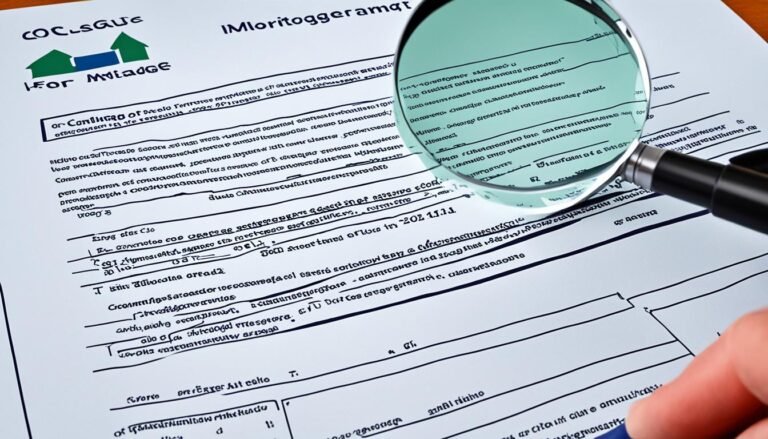The Individual Accountability Framework: Enhancing Accountability in Irish Financial Services
Did you know the Individual Accountability Framework (IAF) Act became law on March 9, 2023? It brings big changes to make Irish financial services more transparent and responsible. By the end of 2023, important parts like Conduct Standards and improvements to the Fitness & Probity Regime will start working. The SEAR Regulations will begin in April 2024.
The IAF Act is more than just a new law. It’s a detailed plan to make sure the financial sector follows the rules and is accountable. It includes the SEAR, Conduct Standards, making sure people in key roles are fit for their jobs, and updating how punishments are given out. Together, these things aim to make the financial world clearer, better run, and more honest.
Key Takeaways
- The IAF Act was signed into law on March 9, 2023, and focuses on strengthening regulatory compliance.
- Key components including SEAR and Conduct Standards come into effect by December 29, 2023.
- Public consultations by the Central Bank have shaped the framework’s evolution.
- The SEAR aims to clearly document senior management’s responsibilities in specific financial firms.
- Enhancements to the Fitness & Probity regime emphasize necessary qualifications and integrity for key roles.
Introduction to the Individual Accountability Framework (IAF)
The Individual Accountability Framework (IAF) is a big deal in Ireland’s financial services. The Central Bank of Ireland introduced it. The goal is to make every person in a regulated firm personally accountable. This boosts trust and honesty from leaders.
Overview of IAF
The IAF overview is all about making things better in finance. Measures like the SEAR from 1 July 2024 and Business Standards later that year toughen the sector. These actions make sure everyone knows their role clearly.
They help in making better decisions and running things smoother at the top.
- SEAR implementation for PCFs by 1 July 2024.
- Business Standards to apply to all RFSPs.
- Conduct Standards initiation from 29 December 2023.
- Updating policies and record-keeping by RFSPs is imperative for compliance.
Historical Context and Need for IAF
The IAF historical context came after the Tracker Mortgage issues in 2018. These problems showed how important it is to manage risks well and hold the right people accountable. This is why the Individual Accountability Framework was made. It stops bad things from happening again and makes decision-making better in finance.
Central Bank’s Role in Implementing IAF
The Central Bank of Ireland leads the change in finance’s rules. With the IAF, they want everyone in finance to be more accountable. They’ve added new rules and made changes to keep up with international standards. This makes the risk management in Ireland’s finance sector very good.
Here are some key dates for implementing the IAF:
| F&P Amendments | IAF Implementation | SEAR Commencement |
|---|---|---|
| 29 December 2023 | 1 July 2024 | 1 July 2024 deferred for (I)NEDs until 1 July 2025 |
| ASP Guidelines | Conduct Standards | Business Standards |
| 13 December 2023 | 29 December 2023 | Towards End of 2024 |
The plan also includes penalties and steps for financial firms to meet the IAF’s risk standards. All this makes Ireland’s finance world a leader in following top global rules. It’s all about better accountability and running things more smoothly.
Understanding the Senior Executive Accountability Regime (SEAR)
The Senior Executive Accountability Regime (SEAR) is key in improving how businesses are run. It makes top managers answer for their actions. It helps everyone know who is in charge, creating a culture where rules are followed closely and things are clear. It’s a lot like the UK’s rules for top managers and key staff.
Purpose and Scope of SEAR
At first, SEAR is for certain financial businesses. This includes banks, insurance companies, and investment firms. Later, it might include more types of businesses. Even people who don’t manage day-to-day may need to follow these rules, showing that everyone plays a part in following the law.
“SEAR is a comprehensive initiative to ensure that senior individuals in financial firms are accountable for their decisions and areas of oversight,” remarks the Central Bank of Ireland.
Important deadlines are coming up. By the end of 2023, all companies must show they follow certain standards. And by July 2024, they must have their roles clearly set out. This makes sure that we see improvement in how companies are run.
Responsibilities of Senior Management
SEAR spells out what big bosses must do. Specific roles are set to avoid confusion. It makes sure that leaders are truly answerable. Rules kick in by July 2024. Every boss will need to know and follow these rules.
- Pre-approval Controlled Function (PCF) Holders: Required to ensure rigorous oversight of their domains.
- Senior Managers: Held accountable for maintaining a compliant operation.
Top roles can’t easily be divided to avoid confusion. But sometimes, like in job sharing, this can be allowed.
Impact on Corporate Governance
SEAR has a big impact on how businesses are managed. It focuses on improving the conduct and roles of top people. The Central Bank says its rules should be fair and clear, helping everyone in a company know how to stay within the law. Other countries have similar rules, making companies more honest and efficient.
The start of the IAF Act on 9 March 2023 is a big deal. It makes SEAR even more important. Now, companies must be very open and follow high standards, making the financial world in Ireland better and more reliable.
- Conduct Standards applicable by 29 December 2023.
- Full adherence to SEAR regulations required by 1 July 2024.
- INEDs subject to SEAR from 1 July 2025.
SEAR is pushing companies to be more accountable. This makes the financial system stronger and more trusted.
The Conduct Standards: Setting Ethical Benchmarks
The Individual Accountability Framework (IAF) brings in Conduct Standards. These standards aim to boost ethical behavior in the finance world. They became law on March 9, 2023. Every worker in regulated finance companies must follow them from December 31, 2023. The rules push for honesty, integrity, keenness, and doing what’s best for customers. They want to create a culture of good professional behavior in financial jobs.
Senior leaders must also meet Additional Conduct Standards. This increases the level of ethics expected. It means the whole company works together to be ethical. Customers can trust the financial world more because of this rule.
The Conduct Standards for Controlled Functions require a lot from people. They have to be very honest, show integrity, be skillful, careful, and diligent. These rules help keep the finance world ethical and build trust with everyone.
There are also new rules about Fitness & Probity. They make sure that people in important jobs are qualified and have good character. This makes the finance sector stronger. It also makes Ireland known for its high standards.
The Senior Executive Accountability Regime (SEAR) is very important too. It makes clear who’s responsible and who makes decisions in the company. SEAR covers about 150 firms in Ireland at first. This makes the finance world work better and encourages good professional behavior.
The Central Bank of Ireland is looking for feedback on the rules for three months after they start. This open approach shows everyone is working together to make the rules better. It helps improve the finance setting in Ireland.
So, the IAF’s Conduct Standards aim high. They want to see really good ethical and professional standards in the Irish finance sector. By pushing for honesty, integrity, and actions focused on customers, the goal is clear. They want to make the finance world a place people can trust.
Enhancements to the Fitness & Probity (F&P) Regime
The Fitness & Probity (F&P) regime now has new updates by the Central Bank of Ireland. These changes show a strong dedication to keeping high standards in finance. The Individual Accountability Framework Act started on March 9, 2023. Then, some parts began on April 19, 2023, making financial institutions’ credibility grow.
New Certification Requirements
Starting December 29, 2023, the F&P regime has new certification requirements. Firms need to certify every year that those in controlled functions (CF) are suitable for their jobs. This check makes sure that the people in these roles meet the industry’s skills and ethics standards. Firms have to do checks, like verifying if they follow the Minimum Competency Code and contacting their old employers.
Proactive Measures by Firms
To handle these new regulations, firms need to take some proactive steps. They have to create a detailed Statement of Responsibilities for each Pre-Approval Controlled Function (PCF). They must also make a Management Responsibility Map. This map shows who is responsible for what and makes sure everyone knows their roles and is accountable. Doing these things helps firms show they’re following the enhanced F&P rules and are trustworthy in managing finances.
Importance of Competence and Integrity
The F&P regime values competence in financial services and integrity in financial management highly. The new guidelines require financial service providers and their parent companies to check qualifications and past crimes of their employees. They must also report any big changes in probity. The High Court oversees these checks, showing how seriously any violations are taken. This confirms a strong promise to maintain these high standards.
With better procedures for checking fitness and probity, SEAR, conduct standards, and strict certification requirements, the framework enhances regulation and strengthens the financial services in Ireland.
Amendments to the Administrative Sanctions Procedure (ASP)
The amendments to the Administrative Sanctions Procedure (ASP) bring big changes in how we regulate the financial sector in Ireland. It’s not just about the rules but also how we enforce them. Let’s look at the key changes the ASP amendments have made.
Direct Enforcement Against Individuals
Now, the administrative sanctions procedure lets authorities go after individuals directly. This is a big shift. It means the Central Bank can act against people who don’t make sure their financial services follow the law.
Before, there had to be a clear link between what an individual did and what their company did wrong. This new way hopes to make each person more responsible and prevent bad behavior.
Changes to Existing Frameworks
The amendments to the ASP also make the rules clearer. They set a specific level of proof for taking enforcement actions. And if an investigation stops, there must be a good reason why.
Now, the Central Bank can put special rules on certain people’s jobs within companies. There are also new ways to settle cases, leading to more open and organized solutions.
These changes mean the process is fair and laid out clearly for anyone involved. For example, people who are being looked into get at least 7 days to respond to preliminary reports. Plus, in complex cases, more time might be needed.
Also, the Central Bank can now make agreements to look at private documents without breaking the law. This adds another level of accuracy to how rules are followed.
Case Studies on ASP Implementation
Looking at real cases helps understand how these changes work. Recently, the Central Bank banned some individuals for not meeting financial laws in their companies. These bans and new work rules show the ASP can be more precise and powerful.
If someone doesn’t agree with a decision from an inquiry, they can appeal to the Financial Services Appeals Tribunal in Ireland. Some cases might need to be checked by the High Court. This way, everyone’s rights are protected under the law.
Public Consultations and Industry Feedback
The Individual Accountability Framework (IAF) consultation started on 13 March 2023 and lasted three months. The Central Bank of Ireland led public talks to improve new rules. It had a lot of inputs from financial firms, showing they care about understanding the IAF rules well.
The Central Bank listened and collected feedback from financial firms about new rules. These rules called the Senior Executive Accountability Framework (SEAR) will impact some firms from 1 July 2024. Also, Conduct Standards and better Fitness and Probity rules will start on 29 December 2023. Independent, Non-Executive Directors need to follow SEAR from 1 July 2025.
A plan was shared by the Central Bank listing what should be done and when. It asks firms to make detailed job maps and task lists for key roles. These are to make sure everyone follows the right rules and laws.
After talking with firms, the Central Bank tweaked its plans a bit. Now, firms can divide duties more freely, as long as all rules are still carefully followed. Plus, all key role holders must prove every year they’re fit for their job, keeping up with set standards.
Bellow is a schedule of important dates based on feedback from the financial sector:
| Milestone | Date |
|---|---|
| Completion of Consultation Process | 13 June 2023 |
| Conduct Standards and F&P Regime Enhancements Effective | 29 December 2023 |
| SEAR Regulations Applicable to In-Scope Firms | 1 July 2024 |
| SEAR Compliance for Independent Non-Executive Directors | 1 July 2025 |
Working closely with financial experts was vital. This and the Central Bank’s focused, fair approach helped make the IAF rules clear. More rules and guides will be out to help everyone know what to do. This makes moving to these new rules easier for everyone.
The Individual Accountability Framework: Enhancing Accountability and Governance
The Individual Accountability Framework (IAF) aims to make Ireland’s financial sector more open and improve behavior. It wants to match global standards of accountability. This would make the financial world more trusted around the globe.
Key Goals of the Framework
The IAF has important goals. It plans to make individuals in finance more responsible. This includes following certain conduct rules. It aims to boost the honesty and skill of financial workers. Doing this will help create a culture of trust and responsibility in finance.
- Senior Executive Accountability Regime (SEAR): Requires firms to clearly show who is responsible for what in top management.
- Conduct Standards: It lays down rules for how people and firms in finance need to behave.
- Enhancements to Fitness & Probity (F&P) Regime: It means people in specific roles must get certified, making sure they act with care and skill.
- Enhanced Administrative Sanctions Procedure (ASP): Lets authorities take direct action against individuals who break conduct rules.
Long-term Benefits for the Financial Sector
Making the IAF work is expected to greatly help the finance world. It should do this by making people trust it more and feel confident. This will lead to following laws and being ethical, giving a strong base for continued growth and new ideas.
| Aspect | Benefit |
|---|---|
| Transparency | Enhanced clarity in roles and responsibilities. |
| Accountability | Improved adherence to ethical standards. |
| Compliance | Stronger enforcement of regulatory measures. |
| Trust | Increased public confidence in financial institutions. |
Comparisons with International Standards
The IAF is inspired by the UK’s SMCR and has been made to fit Ireland’s needs while also meeting international standards. The UK’s experience with the SMCR has been good, showing that such changes can raise financial standards.
The IAF is a big step for making Ireland’s finance laws line up with global ones. This makes sure Ireland’s finance sector can stand globally, as a place that’s fair, strong, and trusted.
Conclusion
The Individual Accountability Framework (IAF) has changed the game in Ireland’s financial sector. It involves strict rules and clear behavior expectations. The Central Bank of Ireland is leading the charge to improve how people in the industry act with their money. This change is key to making sure everyone follows high ethical and governance standards. It also shows the way for other countries in the EU.
Starting in July 2024, the Senior Executive Accountability Regime (SEAR) will increase the focus on being clear and responsible. It includes more conduct standards from late December 2023. And it will align Ireland’s rules with the updated Consumer Protection Code. These changes will lead to a much better financial world for everyone.
The main goal of IAF and SEAR is to stop bad behavior and build a safe financial world. They aim to make sure everyone does their best to be honest and careful. In doing so, Ireland is guiding the financial sector to change for the better. This solidifies its role as a top player in financial rules and oversight.
Source Links
- Individual Accountability Framework | Central Bank of Ireland
- Practical Law: New Individual Accountability Framework in Ireland
- The Individual Accountability Framework (IAF): Enhancing accountability in Financial Services
- Individual Accountability Framework – What’s Another Year 2024
- The Individual Accountability Framework – An Overview
- Individual Accountability Framework Assurance Reviews
- SEAR: The Individual Accountability Framework Act 2023
- Central Bank publishes Individual Accountability Framework Standards and Guidance
- The Individual Accountability Framework (IAF): Enhancing accountability in Financial Services
- The Individual Accountability Framework: What it means for Directors
- What is the Individual Accountability Framework? – Financial Services Thought Gallery
- Individual Accountability Framework – IAF, SEAR, F&P
- Central Bank of Ireland Updates F&P Standards and Guidance
- Update to Individual Accountability Framework
- Understanding Ireland’s Individual Accountability Fr…
- The Central Bank’s Administrative Sanctions Procedure: Updated…
- Insights from the Central Bank’s Administrative Sanctions Procedure (ASP) Consultation
- Central Bank of Ireland publishes Individual Accountability Framework Standards and Guidance
- The Individual Accountability Framework consultation
- Further changes made to individual accountability framework as its commencement looms large
- Microsoft Word – Regulatory Impact Assessment and SME Test – Central Bank (Individual Accountability Framework
- The Individual Accountability Framework | Financial Services
- Another step closer CBIs Individual Accountability Framework | DLA Piper
- CBI updates Individual Accountability Framework for Irish financial firms
- The Individual Accountability Framework – Key Takeaways from Pre-Legislative Scrutiny








